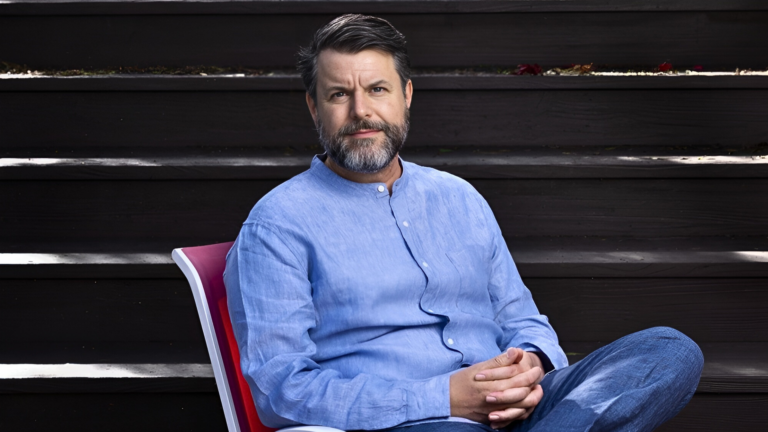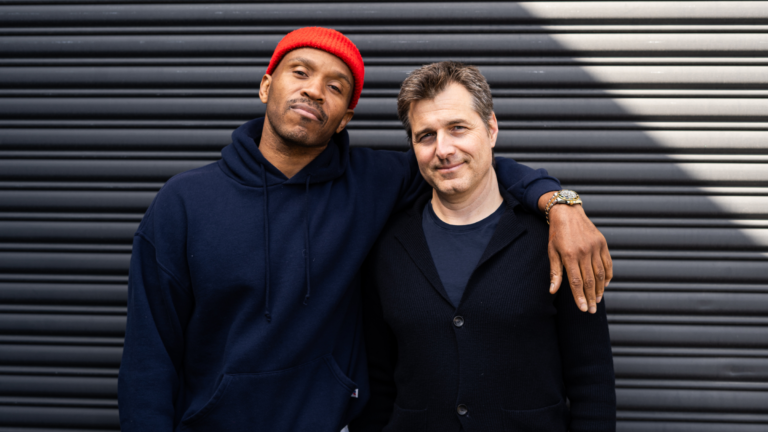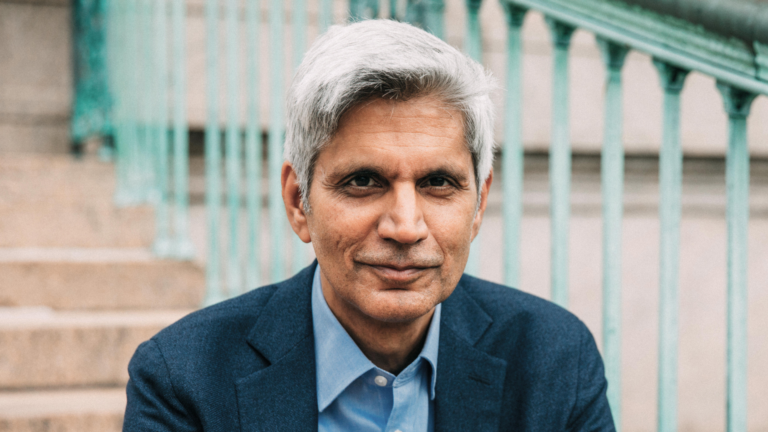This week’s conversation is with Matteo Franceschetti, the CEO of Eight Sleep.
Matteo has always been obsessed with performance. Athletic performance, business performance, and now sleep performance.
His drive to succeed propelled him from sports podiums to the top tier of the international legal world and to start two clean-tech companies on two different continents, all before age 30.
Not surprisingly, sleepless nights were a way of life.
It was Matteo’s quest for more restorative sleep, in fact, that led him down the path to launch Eight Sleep, a company dedicated to fueling human potential through optimal sleep, and to turning the bed into a seamless health platform for improved health, performance, and longevity.
Eight Sleep has been an amazing partner to us for a few years now and I wanted to speak to Matteo to understand both his entrepreneurship journey and his insights on sleep.
What’s the key to getting a great night’s sleep? I think you’ll be surprised to learn about some common sleep misnomers that we touch on in this episode.
You can also learn more about our partnership with Eight Sleep and get $150 off when you visit eightsleep.com/findingmastery.
“I don’t care what other people think. I come from a small town, was not speaking English at 20 or 21 years old, so I’m happy with my progress and I’m proud of that. Like everyone, I have my weaknesses, but we just keep going.”
In This Episode:
His background
Born and raised in Italy. I was really doing sport all the time when I was a teenager. I was doing mainly tennis, it was probably 80% of my focus. When I was somewhere between 10 and 12 years old, I was doing ski races as well. Then I also had that big accident, at the time, and that is when I really switched to tennis. And then, I started racing with go karts, when I was somewhere around 16, 17 years old. My dad used to be in the junior team on this key national team, Italian national team, then he has been two times Italian champion with cars in hill climbing. So that is where I have learned the passion for motor sport and for sport in general.
Why sleep?
Everything started because of two reasons. First, I wanted to sleep less to work more. But that is how I started looking into that. Why do I need eight hours? Why is Elon Musk taking me to Mars but I still spend a third of my life on a piece of damn foam? There is no technology. So, it didn’t change for 4000 years. It didn’t make sense to me. The latest innovation in bed is memory foam invented in 1960 from the NASA and it’s just a piece of foam like the other one, it just behaves slightly differently.
Do we really need eight hours?
I started looking into why we were sleeping eight hours. It’s not written anywhere that you need to sleep eight hours. And so, I started understanding that that is just how inefficient your body is and because your body’s inefficient, it takes eight hours. But what you really need is the amount of deep, the amount of REM, and maybe to a certain degree, a certain amount of light sleep but you don’t need eight hours.Potentially, you could sleep in six hours if you compress the amount of light sleep. And then I started wondering, why there is now we are building reusable rockets and we have phones in our pockets all day, but then a third of my life is spent on a piece of damn foam. And when you think about a third of your life, don’t think daily. Think across the whole life. Let’s say, you live 100 years because now we will live longer. It’s 33 years of your life that are spent without technology on a piece of damn foam and maybe they could be compressed to 25 years. So, what if I give you back eight years of your life? Would you care?
Why temperature matters
We started with temperature, because temperature is the big elephant in the room. When you think of sleep improvements, right? There is clinical evidence or you just read the book, Why We Sleep from Professor Matthew Walker, there’s a whole section about thermoregulation. So there is evidence that through thermoregulation, you can fall asleep up to 20%, faster. You can get up to 20% more deep sleep or REM. You’re getting, in based on our data, 40% less wake ups and 30% less toss and turns, just through thermoregulation. So maybe we are not compressing your sleep two hours but we are making your sleep more restful, definitely you fall asleep faster, definitely you will wake up feeling more refreshed. Temperature is just the first then we will start tackling light and noise. There is clinical evidence shows that you could get up to 20% more deep sleep. For some of our customers, they report even up to 40% with their Oura or their Whoop.
The difference between deep and REM sleep
The deep sleep is really the recovery for your physical body, right? While instead the REM is the recovery for your mind, which is now a memory consolidation, in the reorganization of all the information that you collected during the day. The first part of the night is physical as we say, because it’s deep. And so for example, if you’re sleep deprived, your body will just spend more time on deep sleep at the beginning. Once the deep sleep or the minimum deep sleep has been achieved, is when it shifts to the REM. By the way, there is also clinical evidence that the temperature between REM and deep is different, right? And the reason is particularly because when you are in REM, your brain deactivates certain body functions because you’re dreaming, right? When you dream you’re in REM not when you’re in deep sleep. And so, it deactivates temperature control. So, usually your body to maximize REM phase needs to be in what is called thermal neutrality. So, the brain doesn’t feel that you could die because it’s too hot or too cold. While in studying deep sleep is when the environment can be way hot, way warmer, way colder. But in general, temperature is very subject based, meaning it’s subject to your gender, to your age, to your metabolism, to when you train that day, to the temperature in the room, if you had alcohol or not, if you have carbs or not.
How does he deal with others’ opinions?
When you come from a small city in particular, in Italy, everyone is always judging you. They probably did not have too much to do or to think so they judge you from everything right? From the watch that you’re wearing, to how you behave, to how you dress, it’s very like that in small towns in Italy. And so I think when I was a kid, I was quite impacted by that. And I think as you become older and I think as you have more data points on yourself, then is where you gain a little bit of freedom every single time, right? Because what they were thinking makes sense, I don’t get what they think because now I know I’m making more progress than them. Then I think, like any smart person, it becomes a measurement of, “Okay, who is giving me feedback? Do I listen to feedbacks? And then, am I able to take my own decision? And I think, there is what I finding a good compromise where I’m a good listener but then, I still have my independent opinion and I do what I feel is the right thing.
What frameworks does he use to make decisions?
So the first one is reversible versus non reversible. There is also the regret minimization framework that I use. I fast forward myself, when I’m 80 years old, I look back, would I regret this decision or not which if you think is part of what happened when I decided to become an entrepreneur. Then as the CEO, the other thing, I use four quadrants and I have a line for impact and one for knowledge, right? And so, if I have high knowledge and it’s high impact, I take that decision. If it’s low impact and I have no knowledge, I delegate 100% of the times. And then you can play and position each potential decision in this framework and you decide how much you want to be involved.
What does he consider a good hire?
Every organization is different, right? And it’s like being friends, that is what I always tell people, right? You cannot be friends with everyone. And people that for us are good are people that are really intense, meaning they work in high intensity, they move fast. They are highly coachable. We know how to do our own things. We’re really detail oriented, probably comes from my past as a lawyer, right? We want to do things in a certain way. And so, we want people that are humble enough to take that and maybe fine tune it so it’s not that we pretend to set a rule and people that really care. I mean, here we can save lives, we can extend lives and we can just help people live a better life. And so, we don’t want mercenaries. That is a different way to say this in concept.
What’s he best at?
There are a couple but the first one or the one I’m most proud of is when I let people achieve more than what they believe they could achieve. That is what makes me really, really happy. And the way I do it is because I push them, I stretch them but then you have this reward where they really unlock superpowers. And that is what makes me happy because now these people are happier or stronger and more confident people so that is number one. And then, I think I’m good at fundraising. I’m good that… I’m a very present CEO, right? You can call me any time of the day, of the night, I will always there. For our best people, we have done a lot of things personally to help them. So we take care of our people,
What’s his vision for the future of Eight Sleep
We really want to do two things. We want to compress your sleep and we want to save your life. Compress your sleep means what if you go could sleep only six hours and get more rest than when you were sleeping eight hours. Hours is a provocative number. But definitely, we want technology to enhance your sleep performance. And then there is the big piece of what we are doing that is saving your life, we are looking at sensors that will be able to scan your body. And so what if in three years from now, we could detect cancer or other illnesses while you’re asleep? The future is faster, right? And saving your life, I can accept that I need to go to the doctor, right? There are some of these cancer like pancreatic or colon cancer, the most of the times if you were able to detect them very early, you can save your own life, right? The reason why they’re not detected early is because you don’t go regularly to scan your body in those areas, right? The dad of my wife died because of colon cancer, for example. And so, if we can use some of the technologies that we are exploring and we can scan your body every single night and extend your life… In the regret minimization framework that we discussed, that is what would make sense in how I spent my whole life.


